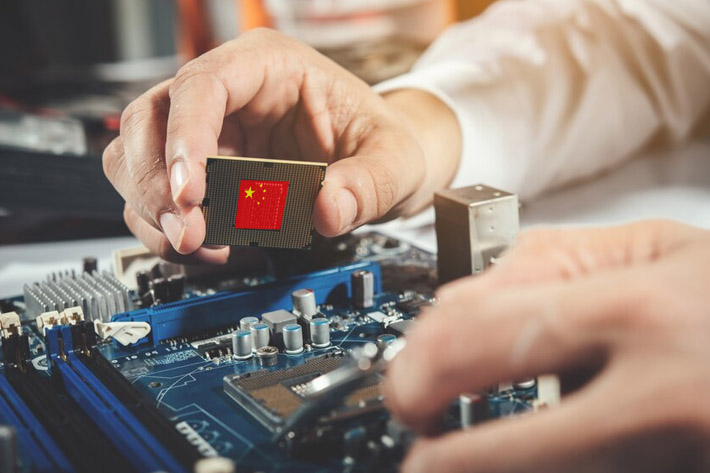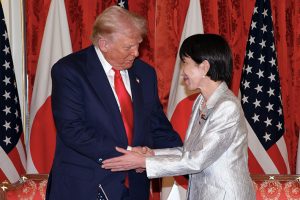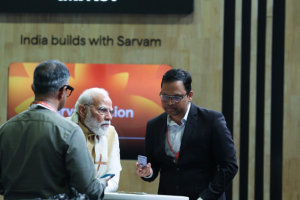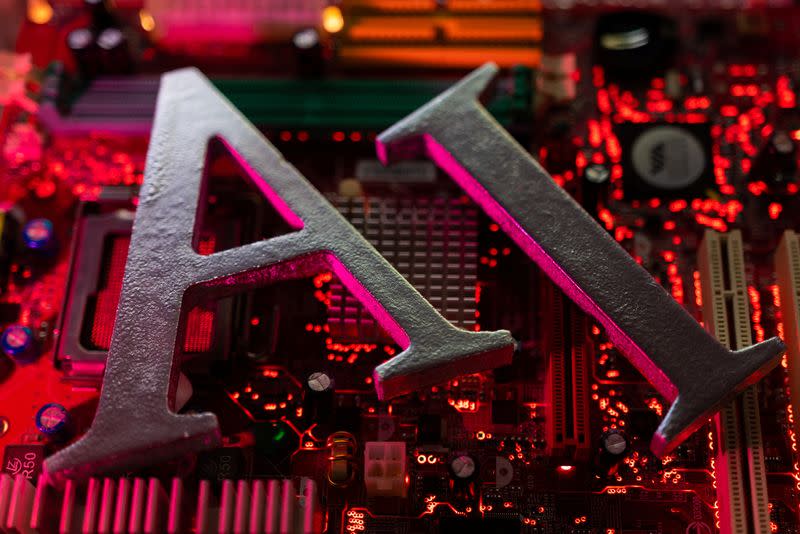US chip designer Broadcom is reported to be developing an advanced AI processor for Chinese tech giant Bytedance.
The 5 nanometre chip – a customised product known as an application-specific integrated chip (ASIC) – would be compliant with US export restrictions and manufacturing work would be outsourced to Taiwan’s TSMC, according to two sources who spoke to Reuters.
The move aims to help TikTok’s owner secure a sufficient supply of high-end chips amid US-Sino tensions.
ALSO SEE: EU And China Agree to Negotiations on EV Tariffs, Minister Says
Production may start in 2025
ByteDance’s tie-up with Broadcom, an existing business partner, would help slash procurement costs and ensure a stable supply of higher-end chips, said the sources, who declined to be identified due to the sensitivity of semiconductor issues in China.
TSMC is, however, not expected to start manufacturing the new chip this year, they said. One of them said while design work is well underway, the “tapeout” – which marks the end of the design phase and the beginning of manufacturing – has not started.
ByteDance and Broadcom did not respond to repeated requests for comment. TSMC declined to comment.
Like many global tech firms, ByteDance has launched a major push in generative artificial intelligence but the company and its Chinese peers have to contend with far more limited supply of AI chips than their overseas counterparts.
Nvidia’s most advanced chipsets are out of reach due to US export controls aimed at impeding breakthroughs in AI and supercomputing by China’s military.
Competition for US chips developed specifically for the Chinese market as well as those from rival Huawei, one of the few Chinese makers of AI accelerators, is fierce.
ByteDance and Broadcom have been business partners since at least 2022. The Chinese firm has purchased the US company’s Tomahawk 5nm high-performance switch chip, as well as its Bailly switch for AI computer clusters, Broadcom has said in public statements.
AI chips for short-video apps, chatbots
Securing AI chips is crucial for ByteDance to make its algorithms more powerful. In addition to TikTok and the Chinese version of the short-video app called Douyin, ByteDance operates a range of popular apps including a ChatGPT-like chatbot service called Doubao, which has 26 million users.
To support its AI push, ByteDance has stockpiled Nvidia chips, according to a separate person who was briefed on the matter.
This includes A100 and H100 chips available before the first round of US sanctions kicked in as well as A800 and H800 chips that Nvidia made for the China market but were also later restricted, the person said, adding that ByteDance allocated $2 billion for purchases of Nvidia chips last year.
ByteDance also purchased Huawei’s Ascend 910B chips last year, two separate sources with knowledge of the matter said.
Bytedance currently has hundreds of semiconductor-related job openings posted, including 15 for ASIC chip designers, according to checks of its website.
It has also been poaching top people from other Chinese AI chip firms, according to one of the sources who has direct knowledge of this issue.
- Reuters with additional editing by Jim Pollard
ALSO SEE:
US ‘Wants Allies to Block Equipment to More China Chipmakers’
US Releases Detailed Rules For Export Curbs on AI Chips to China
US ‘Drawing Up List of Sanctioned Advanced Chinese Chip Fabs’
China Bans Government Computers From Using Intel, AMD Chips: FT
China’s Retaliatory Bans Could Cost US Tech Giants Billions
China’s SMIC May Have Breached US Curbs With Huawei Chip
Beijing’s Push to Dump Foreign Tech on Display at China Chip Fair
Global Chip Sector ‘Can Never Return to its Pre-Covid Set-up’
Any Expansion of China Chip Curbs Will Risk Business, ASML Says
Report Explains How China Got Round US’s Initial Chip Curbs
























